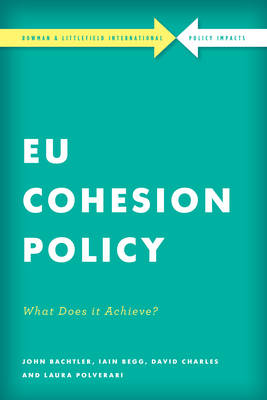Rowman & Littlefield International - Policy Impacts
1 total work
EU Cohesion Policy in Practice
by John Bachtler, Iain Begg, Fellow and Tutor in Philosophy David Charles, and Laura Polverari
Published 20 July 2016
EU Cohesion policy, along with support for agriculture and rural development, is one of the main items of EU spending. As such, the performance of the policy has come under increasing scrutiny. Perhaps surprisingly, however, past attempts to assess the effectiveness of the EU's have proved to be highly ambivalent.
This book examines the long-term achievements of Cohesion policy from 1989 to 2012 and draws out the main policy implications. Originally undertaken for the European Commission by the authors, this major longitudinal study adopts an innovative approach to assessing the effectiveness and achievements of this policy, building on case studies of 15 regions from different parts of Europe. The rationale for the book is to present the findings of the research in a concise and digestible manner that will be of value to policy-makers across the EU and to academics interested in the past effectiveness and future direction of the policy. The research brings out messages for the conduct of Cohesion policy in the current programme period, covering 2014-2020. It also has implications for the debates, already launched, on how Cohesion policy might evolve after 2020."
This book examines the long-term achievements of Cohesion policy from 1989 to 2012 and draws out the main policy implications. Originally undertaken for the European Commission by the authors, this major longitudinal study adopts an innovative approach to assessing the effectiveness and achievements of this policy, building on case studies of 15 regions from different parts of Europe. The rationale for the book is to present the findings of the research in a concise and digestible manner that will be of value to policy-makers across the EU and to academics interested in the past effectiveness and future direction of the policy. The research brings out messages for the conduct of Cohesion policy in the current programme period, covering 2014-2020. It also has implications for the debates, already launched, on how Cohesion policy might evolve after 2020."
